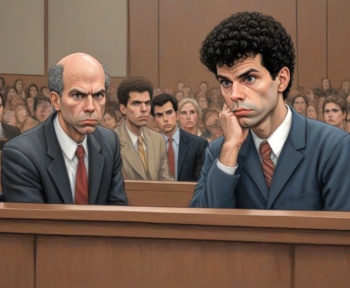During a recent segment on his program “Real Time,” comedian and commentator Bill Maher sharply criticized the political reactions of our time, introducing the term “big ick energy” to describe his distaste towards both Donald Trump and the left. This expression conveys a significant level of discomfort or disapproval.
The focus of Maher’s critique was not directly on the endorsement of Donald Trump by Robert F. Kennedy Jr. (RFK Jr.), but on the intense backlash aimed at RFK Jr.’s wife, Cheryl Hines. Specifically, Maher was concerned with the criticisms from Bradley Whitford, an actor known for “West Wing.” Whitford harshly tweeted at Hines, urging her to oppose her husband’s political stance, emphasizing her supposed responsibility as a role model and accusing her husband of supporting harmful policies.
This situation escalated to a broader debate, with some people implicitly expecting Hines to separate from her husband over political disagreements highlighted by Whitford’s tweet. Maher pointed out the unpleasant attitude or “ick factor” in Whitford’s approach to mansplaining how Hines should react, noting that even organized crime figures traditionally refrain from involving opponents’ spouses in disputes. He highlighted this as an example of the problematic behavior that has become more common among Democrats on social media, despite former President Barack Obama’s advice against such conduct delivered during the DNC. Obama had advised against assuming the worst in political opponents and cautioned against publicly shaming and scolding them.
Further enhancing his discussion, Maher used a sharp quip about John Edwards to deliver a poignant critique with a mix of humor, driving home his point about the prevalent “big ick energy.”
Overall, Maher’s commentary shed light on the increasingly divided and confrontational nature of political discourse, illustrating how intense polarization and social media dynamics contribute to the challenging landscape of modern politics.




